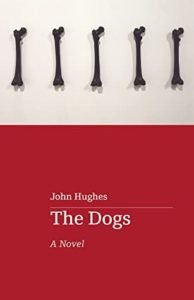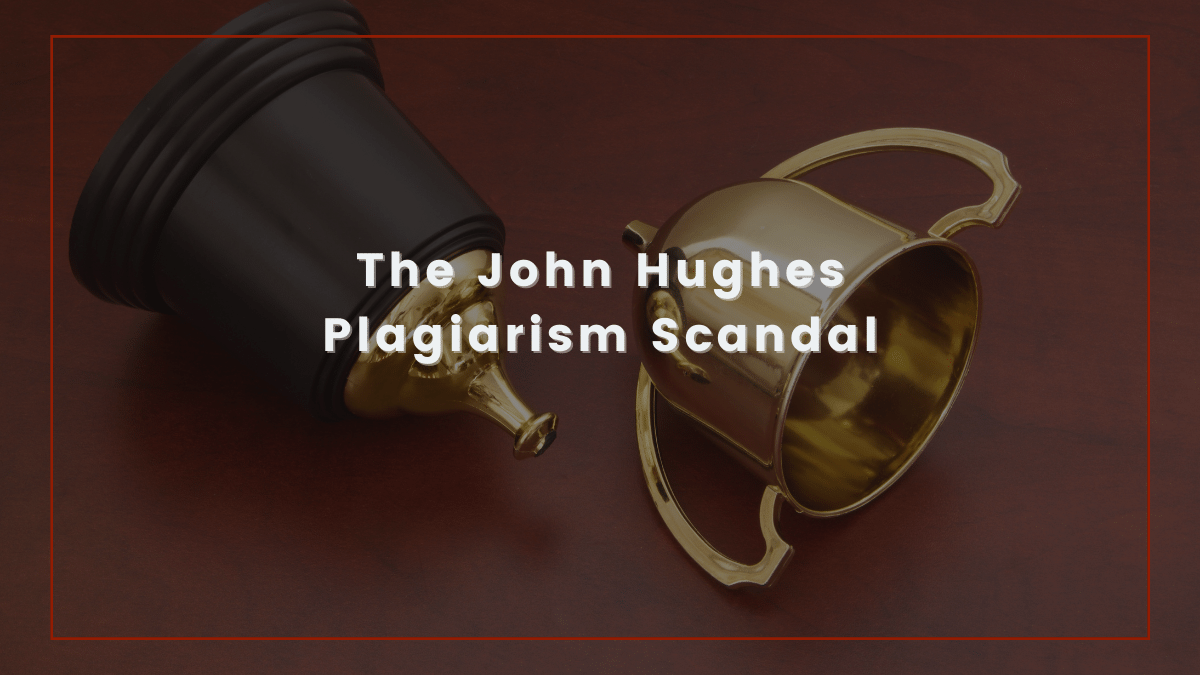The John Hughes Plagiarism Scandal

On June 9th, Anna Katharine Verney at the Guardian Australia published a lengthy analysis of the John Hughes book The Dogs.
The book was on the longlist for the Miles Franklin prize, widely considered to be the highest literary prize in Australia. However, according to The Guardian, the book contained many similarities to a 2017 English translation of the book The Unwomanly Face of War by Svetlana Alexievich.
The similarities included both scenes and ideas that were rewritten, as well as lengthy passages of text that were copied either verbatim or near-verbatim.
Hughes, for his part, apologized for the copying. In that original article, he admitted that he had used Alexievich’s work as a source, and he had conflated them with the stories of his grandparents.
He went on to say that, “I could no longer unpick them, even if I had wanted to.”
He gave a sweeping apology to both Alexievich and her translators. Shortly thereafter, the book was removed from the longlist and, after Hughes’ publisher said that they were standing by him despite the issue. It seemed as if the story was likely over.
However, over the next few days, other instances of plagiarism in The Dogs were discovered. This included passages similar to The Great Gatsby, Anna Karenina and All Quiet on the Western Front.
To these allegations, Hughes had a very different response. In a 1,700-word essay on The Guardian website, explained that the copying was simply part of his approach to writing and that he has always used the works of other writers in his own.
Throughout the paper, he compared himself to literary greats such as T.S. Eliot and Bob Dylan. He claimed that it didn’t matter if he copied, it mattered if he did something new and meaningful with it.
That explanation, however, fell flat. Literary experts pointed out that Eliot included footnotes with his work and that, if he intended to create a new work based on previous material, it should have been presented and marketed that way, not as an original work.
Even Hughess publisher, Terri-ann White of Upswell Publishing, said that they were “affronted” by Hughes’ change in message and said that they “now recognize this as a breach of my trust.”
In short, Hughes seems to have made things worse for himself with his second statement. However, this does raise the question: Could there be something to his argument?
The answer is a resounding no.
The Problem Hughes Faces
When the scandal first broke, Hughes was something of a sympathetic character. By his own admission, he has never written work like The Dogs and was likely in over his head a bit. Combine that with a 15-year process for writing it and some clearly poor note-taking and organization, it’s easy to see what happened.
To be clear, this version of Hughes is still very much a plagiarist. We’ve discussed this a lot these past few weeks, including explaining why you can’t “make someone else’s words your own”, why writing in a cleanroom is the only way to ensure you’re creating original content and how to actually avoid plagiarism.
If you write in the manner that Hughes describes, you not only make plagiarism possible, but inevitable. As an author, especially one publishing a major book, you are still ethically responsible for that.
However, this is a problem that can be addressed with education and better approaches to writing. Publishers can, and should, work with their authors to ensure that they are following best practices and prevent these kinds of incidents.
Even with the new revelations against him, there was no reason to believe that Hughes’ infractions were deliberate.
However, for most, that benefit of the doubt died with his essay.
The Second Explanation
It’s his second explanation where things go off the rails for Hughes. Attempting to explain his infractions through the prism of other literary greats is not only tone-deaf, but missing the point completely.
To be clear, Hughes is very much right that many legitimate artists borrow and appropriate other works into new ones. He’s also right that the boundaries between plagiarism and inspiration are not always clear.
However, Hughes’ actions went beyond inspiration and into verbatim copying. Doing that requires that the audience be aware of what is going on and be aware of what the sources are.
As Alyson Miller at The Conversation put it, this is known as the “Cento Defense”, named after cento poems, which are made up entirely of lines from other poems. It is a legitimate form of poetry that goes back as far as the written word. However, while this isn’t the actual defense that Hughes is using, it’s worth noting that cento poets still make it clear what they are doing.
If Hughes wanted to create a work that was a mashup of original and new stories/passages, either verbatim or indirectly, that could be very interesting and valuable. However, he never presented this book as such.
He never informed his publisher that this was his goal, he included no citations or even indications that the book was anything less than wholly original, and he even submitted to a contest where the guidelines clearly state that, “all entries must consist entirely of the author’s original work.”
No one, not the audience, not his publisher, not the contest organizers, had any reason to believe this was anything less than a wholly original work. All of this was due to his own actions.
However, Hughes also seems to not fully understand the issue of plagiarism. In his response, he focuses heavily on the act of copying, not the lack of attribution or the presentation of the book itself.
Many of the things he did are fine if the audience is aware of what the author is doing. Though footnotes or in-text citations would have been best, any acknowledgment of outside material would have helped with this argument.
Instead, flipping around and saying that the plagiarism wasn’t plagiarism and instead was meant to explore new approaches to storytelling is the equivalent of saying that your audience is stupid for believing you and how the book was promoted.
It’s an insult and one that the audience isn’t likely to accept.
Bottom Line
In the end, Hughes’ second explanation makes him a liar, even if he doesn’t intend to be one.
He either lied when he apologized to Alexievich and said that the plagiarism was accidental, or the lied when he said that it was simply a part of writing for him. He either lied when he said he was unaware of the issues, or he lied when he submitted the work to a contest that required that submissions, “consist entirely of the author’s original work.”
Hughes did respond to his publisher saying, “In my piece on influences I never intended to imply that I had knowingly passed off other writers words as my own.”
However, that piece is literally entitled, I Am Not a Plagiarist – and Here’s Why and includes lines such as, “I’ve always spoken through the voices of others,” and “The Dogs is, in one way then, a story about second-hand stories.”
It seems like, once again, Hughes is blaming the audience for not understanding what he is doing or saying, even as sends a clear message to the counter.
Looking through Hughes’ history, he is clearly a talented writer. Reading his explanations, I do agree that he was likely in over his head writing a book that was unfamiliar to him. A sincere apology, like the one he first gave, along with changes in process could have addressed this. The world has forgiven much larger grievances.
Someone with his accomplishments could have easily overcome this, and he may still do so. But his response puts his supporters and people like me in a tough place as we try to understand or empathize with him.
Simply put, this wasn’t the case to explore the nature of appropriation art or the complexities of inspiration. Multiple verbatim passages of earlier text were found in his work, which was actively presented as an original tome.
It was a time for apologies and adjustments. Trying to make this into something that it isn’t burned bridges needlessly and actively harmed his biggest supporters.
Want to Reuse or Republish this Content?
If you want to feature this article in your site, classroom or elsewhere, just let us know! We usually grant permission within 24 hours.
